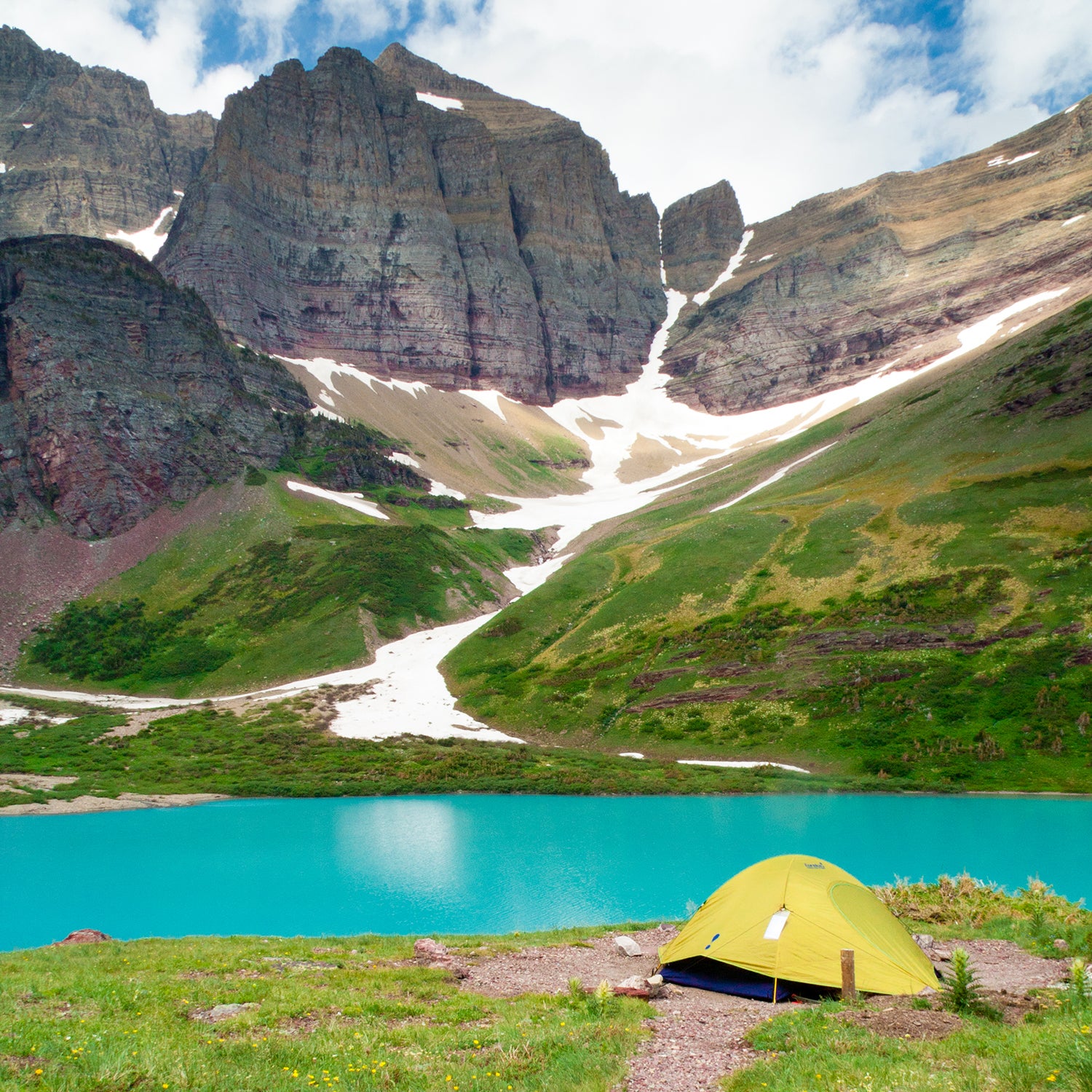We’ve mapped out��rules for going outdoors during the coronavirus crisis, but if you follow them, is it safe to camp?
“Would it be an issue to car camp and travel if the only contact you would have is with a gas pump?” Matt, a reader, wrote to me in a recent email. He goes on to detail plans to pay only with a credit card, to carefully disinfect all��surfaces he might touch, and to avoid entering any sort of store or restroom. Basically, he says he’d do everything within his power to avoid human interaction, just so he can finally go camping again.��
This is a good question! All of us are going stir crazy at home right now, the springtime weather is beautiful, and nothing says social distancing like heading for the mountains.��So, I ran it past , the infectious disease expert who’s advising the state of Montana on its response to the crisis.��
Montana has combined the advantages offered by its remote location and low population density with an early stay-at-home order from Governor Bullock, and , while��neighboring states like have. But, a story from one very remote town in Montana does illustrate the risk even isolated communities face from the disease.��
Shelby, Montana, (population: 3,089) is located in the north-central part of the state, in an area about as far from major population centers as you can get in the lower 48. But, on a per-capita basis, Shelby has . How did the disease get there? Officials point to��the AMTRAK train that passes through town twice a day, along with the riders it brings, as one potential vector. The other? . Shelby is located on Interstate 15, and it’s feared that travelers stopping in town for gas may have brought the virus��there.��
“For those of us who feel healthy, as some portions of the country begin to relax restrictions, it can be tempting to rush back to life as normal,” says Neumann. “But we must remember that all of us could be carriers. Until we have universal testing and/or a vaccine for COVID-19, we must continue to practice vigilant hygiene, wear masks in public, and continue social distancing. As we saw in Shelby, one mistake at a gas pump or store could have a devastating impact on a remote community.”
Even if we take care to disinfect anything we might touch (before and after)��and limit our physical contact to gas pumps, stopping at a gas station still creates potential ways to transmit��the virus. Is the person using the gas pump next to yours really six feet away? Even if you’re wearing a mask, are they? Is it possible that you’ve left aerosol droplets on the ground��that the next customer may pick up on their shoes��and bring inside their car? What if you break down��and need to call a tow truck? What if you get into an accident? One of those might expose first responders��and tax a town like Shelby’s��already strained healthcare resources.��
The coronavirus can only spread through close contact between people, or the��surfaces they may share. It looks like . By avoiding travel, we avoid spreading the disease. Additionally, traveling to camping destinations naturally involves passing through small, remote communities. As Shelby’s outbreak demonstrates, those small, remote communities often lack adequate healthcare facilities at the best of times.
All of us want this situation to be over as soon as possible, so that our economy can recover��and we can enjoy normal activities like camping trips again. And that’s why it’s so important that all of us participate in the solution, not the problem.��
Neumann’s original advice stands: don’t travel outside of your local community. If you’re able to abide by the rest of the rules for going outdoors during the pandemic, and have access to legal, open areas to camp within that community, then by all means go camping close to home. But no, it is not currently responsible to go on a camping trip. And it likely won’t be until we have widespread testing for the disease.��


